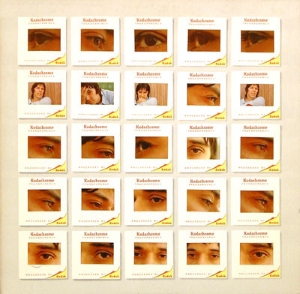“The Philosopher” opens with a bluesy acoustic slide guitar while percussion thumps, an organ bleats, and horns blare, then a viola arrives. Ron Wood is thanked in the notes for the next track, but we suspect he’s playing the slide on this, because “Brahms” is simply solo piano in the classical style. Maybe he came up with the title? “Legs Larry At Television Centre” is named after the titular narrator, the drummer from the Bonzo Dog Band, here in the role of a director in an imaginary control room guiding the cameras supposedly filming the string quartet. Frankly, he’s distracting. The title track returns to the piano, starting quietly and eventually getting more frantic.
Layers of swirling piano make up the “Intro” to “Days Of Steam”, the most conventional track here, missing only a vocal and lyrics. The viola takes the melody, with a piano and vibraphone mostly doubling each other, before a recorder right out of “Ruby Tuesday” and a trumpet playing chromatic scales takes us out. The next “3 Orchestral Pieces” are banded as one track, and could be film soundtracks: “Faust” is lovely and haunting, “The Balance” begins regally and goes off-balance, and “Capt. Morgan’s Lament” is more stately. “King Harry” returns to the style of “The Philosopher” and “Days Of Steam” with percussion, plus demonic hissed vocals by Cale. Finally, “John Milton” is another piano piece with orchestral touches, and it’s quite moving.
One wonders how Reprise thought they were supposed to market this album. It’s not radio-friendly in the least, but when the guy whose name is on the cover works for the label, maybe that was enough for them. It’s tough to recommend The Academy In Peril, but for all its lovely moments, it still deserves to be heard. (The album was finally remastered in 2024, and included an extra track in “Temper”. This neo-classical piano exploration was an outtake from the sessions, and first emerged on an odd Warners sampler of punk and new wave music in 1980.)
John Cale The Academy In Peril (1972)—2½
2024 Version: same as 1972, plus 1 extra track

It's worth hearing. Once. Cale has always struck me as a bit of a charlatan, and only Paris 1919 delivers what you'd expect from his reputation.
ReplyDelete